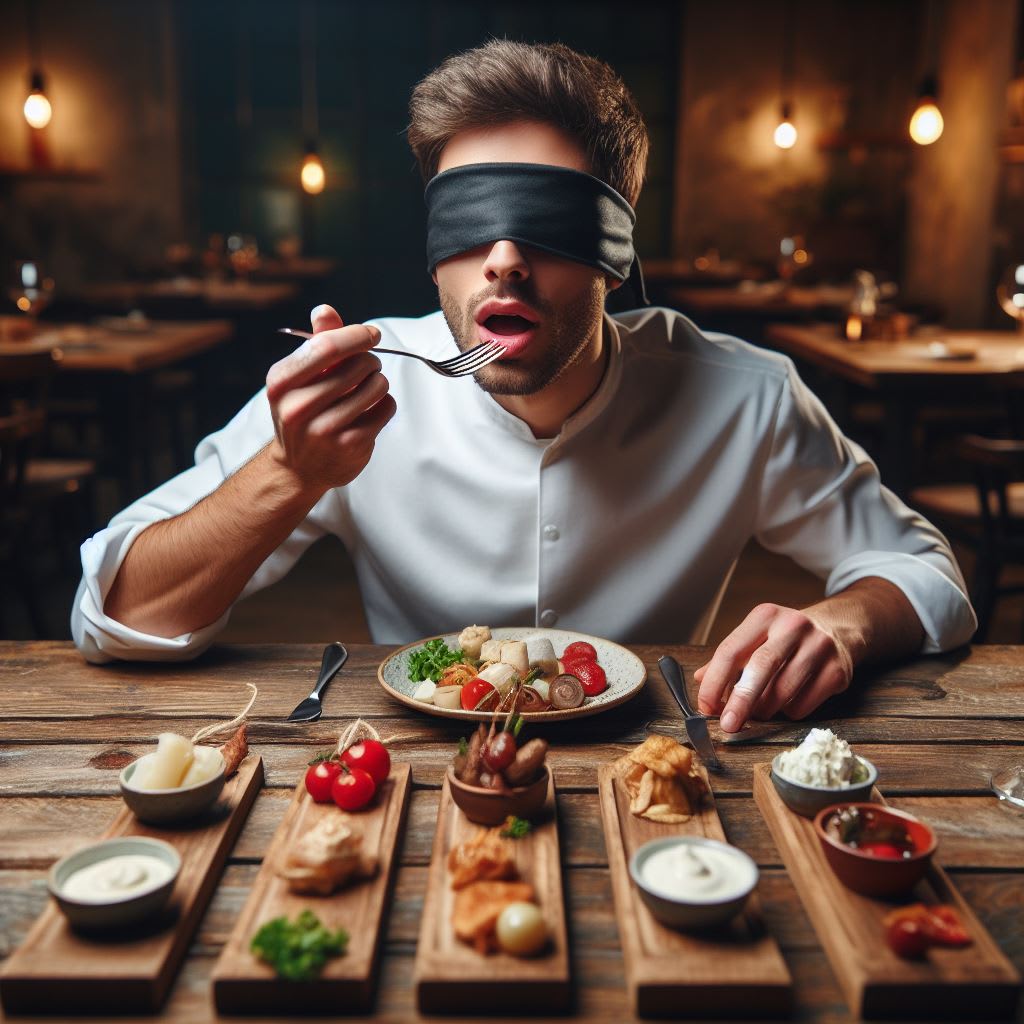The Allure of Blindfold Tasting Experiences
In the world of culinary and wine experiences, blindfold tasting stands out as a unique and immersive way to engage the senses

In the world of culinary and wine experiences, blindfold tasting stands out as a unique and immersive way to engage the senses. This experience involves participants being blindfolded to remove the sense of sight, thereby heightening the remaining senses. It’s a practice that has been embraced by food enthusiasts, wine connoisseurs, and adventure seekers alike. But how does it differ from its close relative, dining in the dark, and why do people find blindfolded experiences so captivating?
Blindfold Tasting vs. Dining in the Dark
Blindfold tasting and dining in the dark share a common principle: the removal of visual cues to enhance the other senses. However, there's a subtle but significant difference between the two. Blindfold tasting, often used in wine or food sampling, specifically involves the use of a blindfold to cover the eyes. This method can be applied in various settings, from formal wine tasting events to casual dining experiences. Participants know they are focusing on tasting alone, and the blindfold is a temporary tool for enhancing this sense.
Dining in the dark, on the other hand, immerses participants in a completely darkened room for the duration of their meal. This experience goes beyond tasting, as diners must navigate eating, pouring drinks, and even conversing in total darkness. It challenges and engages all the senses in a way that blindfold tasting does not, offering a broader experience of sensory deprivation and enhancement.
Why People Enjoy Being Blindfolded
The fascination with being blindfolded during tasting experiences stems from the thrill of the unknown and the enhancement of the sensory experience. Sight is our dominant sense; it helps us make immediate judgments about food and drink before we've even tasted them. Removing this sense creates a sense of mystery and anticipation. Participants are more likely to approach the experience with an open mind, free from the bias that visual cues can create.
Blindfolded tastings can also become a playful and social activity. They offer a break from the ordinary, encouraging participants to trust their other senses and engage in the experience with a sense of adventure. This can lead to surprising discoveries about personal tastes and preferences that might not emerge under normal circumstances.
Unique Benefits of Blindfold Tastings
Enhanced Sensory Perception
One of the most significant benefits of blindfold tastings is the heightened sensory perception that comes with the removal of sight. Flavours become more pronounced, and the texture and aroma of food and wine take on new dimensions. This can lead to a deeper appreciation of the complexities and nuances that might be overlooked in a typical tasting experience.
Breaking Down Prejudices
Blindfold tastings can challenge and change preconceived notions about certain foods or wines. Without visual cues, participants might find themselves enjoying a varietal of wine they previously avoided or discovering a newfound appreciation for a cuisine they thought they didn't like. This can broaden culinary horizons and encourage more adventurous eating and drinking habits.
Improved Social Interaction
Blindfold tastings create unique social dynamics. The shared experience of navigating a meal or tasting without sight can lead to interesting conversations and interactions. It strips away some of the formalities and barriers that can exist in social dining situations, encouraging more open and honest communication.
Focus on Mindfulness
Without the distraction of visual stimuli, participants are encouraged to eat more mindfully. This can enhance the overall enjoyment of the food and drink, as diners take the time to savour each bite or sip fully. Mindful eating has been linked to improved digestion and satisfaction with meals, making blindfold tastings not just a fun experience but a beneficial one as well.
Conclusion
Blindfold tasting experiences offer a unique and immersive way to explore the world of food and wine. By removing visual cues, these tastings enhance sensory perception, challenge prejudices, improve social interactions, and encourage mindfulness. While closely related to dining in the dark, blindfold tastings focus specifically on the sense of taste, offering a distinct and memorable way to experience the culinary world. Whether for the thrill of the unknown, the desire to deepen sensory appreciation, or simply to enjoy food and drink in a new and exciting way, blindfold tastings provide a pathway to a richer, more nuanced understanding of what we consume.





Comments
There are no comments for this story
Be the first to respond and start the conversation.